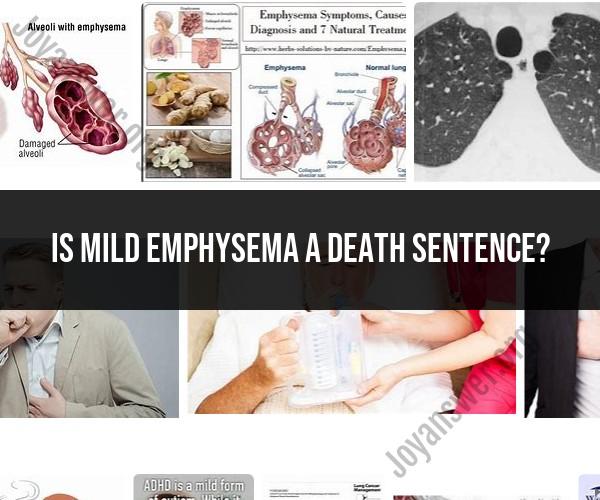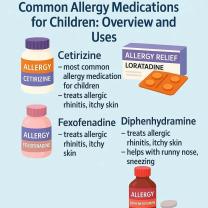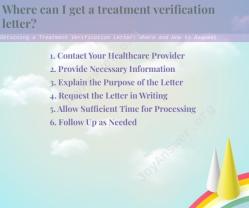Is mild emphysema a death sentence?
Mild emphysema is not a death sentence, but it is a chronic and progressive lung condition that can have serious implications for your health and quality of life if not managed properly. Emphysema is a type of chronic obstructive pulmonary disease (COPD) that primarily affects the air sacs (alveoli) in the lungs. It is characterized by the gradual destruction of these air sacs, leading to reduced lung function.
Here are some key points to consider about mild emphysema:
Progression: Emphysema tends to progress slowly over time, and its severity can vary from mild to severe. Mild emphysema means that the damage to the lungs is in its early stages, and lung function is only moderately impaired.
Symptoms: In the early stages, mild emphysema may not cause noticeable symptoms. However, as it progresses, common symptoms can include shortness of breath, chronic cough, increased mucus production, and reduced exercise tolerance.
Management: Managing mild emphysema is crucial to slowing its progression and improving your quality of life. This typically involves quitting smoking (if you smoke), avoiding exposure to lung irritants like air pollution and secondhand smoke, and following a treatment plan prescribed by your healthcare provider. Treatment may include medications, pulmonary rehabilitation, and oxygen therapy if necessary.
Prognosis: The prognosis for individuals with mild emphysema can vary depending on factors such as age, overall health, and adherence to treatment. Early diagnosis and effective management can significantly improve long-term outcomes and slow the progression of the disease.
Prevention: Prevention is essential. If you smoke, quitting smoking is the most effective way to prevent emphysema and halt its progression. Avoiding exposure to environmental toxins and pollutants is also important.
While mild emphysema is not a death sentence, advanced stages of the disease can be life-threatening and severely impact a person's ability to breathe and carry out daily activities. Therefore, it's crucial to seek medical attention, follow your healthcare provider's recommendations, and make lifestyle changes to manage the condition effectively and maintain a good quality of life. If you have concerns about emphysema or its management, consult with a healthcare professional for personalized guidance and support.
Mild Emphysema: Dispelling the Misconceptions
Emphysema is a type of chronic obstructive pulmonary disease (COPD) that damages the air sacs (alveoli) in the lungs. This makes it difficult for the lungs to absorb oxygen and release carbon dioxide.
Mild emphysema is the early stage of the disease. People with mild emphysema may have few or no symptoms, or their symptoms may be mild and infrequent. However, it is important to note that emphysema is a progressive disease, which means that it gets worse over time.
There are a number of misconceptions about mild emphysema. Here are some of the most common ones:
Misconception: Only smokers get mild emphysema.
Fact: While smoking is the leading cause of mild emphysema, it is not the only cause. Other causes include exposure to secondhand smoke, air pollution, and occupational dust and fumes.
Misconception: People with mild emphysema cannot live long lives.
Fact: With proper treatment and management, most people with mild emphysema can live long and healthy lives.
Misconception: People with mild emphysema cannot exercise.
Fact: Exercise is actually very important for people with mild emphysema. It can help to improve lung function, reduce symptoms, and boost overall health.
Misconception: There is no effective treatment for mild emphysema.
Fact: There are a number of effective treatments for mild emphysema, including medications, pulmonary rehabilitation, and oxygen therapy.
Living with Mild Emphysema: Longevity and Lifestyle
People with mild emphysema can live long and healthy lives with proper treatment and management. Here are some tips for living well with mild emphysema:
- Quit smoking. Smoking is the leading cause of emphysema, so quitting is the best thing you can do for your lung health. If you need help quitting, talk to your doctor.
- Take your medications as prescribed. Your doctor may prescribe medications to help improve your lung function and reduce your symptoms. Be sure to take your medications as prescribed, even if you are feeling well.
- Get regular exercise. Exercise is important for everyone, but it is especially important for people with emphysema. Exercise can help to improve lung function, reduce symptoms, and boost overall health. Talk to your doctor about what type and level of exercise is right for you.
- Eat a healthy diet. Eating a healthy diet can help to improve your overall health and well-being. Be sure to eat plenty of fruits, vegetables, and whole grains.
- Get enough sleep. When you are well-rested, you are better able to cope with the symptoms of emphysema. Aim for 7-8 hours of sleep per night.
Strategies for Managing Mild Emphysema and Enjoying Life
There are a number of things you can do to manage your mild emphysema and enjoy your life. Here are a few tips:
- Learn about your condition. The more you know about mild emphysema, the better equipped you will be to manage it. Talk to your doctor about your condition and ask any questions you have.
- Identify your triggers. Everyone with mild emphysema has different triggers that can worsen their symptoms. Some common triggers include smoke, air pollution, and cold weather. Once you know what your triggers are, you can take steps to avoid them.
- Have a plan for managing your symptoms. If you experience a flare-up, it is important to have a plan in place for managing your symptoms. This may include taking your medications more often, using oxygen therapy, or resting at home.
- Don't let mild emphysema stop you from doing the things you enjoy. With proper management, most people with mild emphysema can live full and active lives. Continue to do the things you enjoy, such as spending time with loved ones, traveling, and pursuing hobbies.
If you have mild emphysema, it is important to work with your doctor to develop a treatment and management plan that is right for you. By following the tips above, you can live a long and healthy life with mild emphysema.












